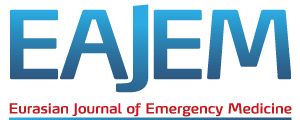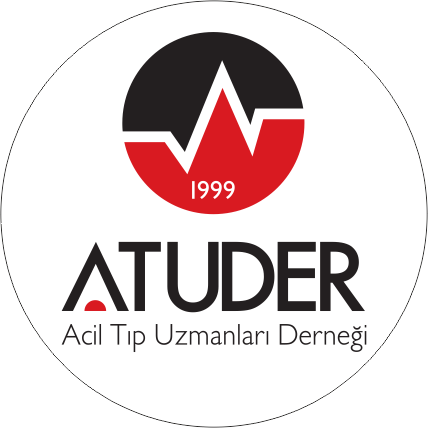ABSTRACT
Objective:
Our purpose in this study was to determine the accuracy and reliability of interpretation of basic arterial blood gas (ABG) values and ABG values related to metabolic and respiratory disease by emergency medicine residents (EMRs). We also aimed to determine their deficiencies and create a basis for training during patient care.
Material and Methods:
This study was carried out through a survey taken by EMRs in training/research and university hospitals located in Ankara. The levels of knowledge of EMRs on ABG evaluation were compared based on the institution, duration of residency, and training. A 14-question test about ABG knowledge was also applied to residents.
Results:
The study was conducted with 25 EMRs in university hospitals (UH) and 88 EMRs in training/research hospitals (TRH); a total of 113 residents participated to the survey. There was no statistical significant difference between training/research and university hospitals according to the number of correct answers given. Year of residency did not affect the number of correct answers; however, residents who had training on ABG analysis in the residency period had more correct answers. Also, in a small study group (n=17), a significant improvement of the number of correct answers was observed with a short institutional course.
Conclusion:
According to the results, ABG evaluation improves with personal training in the residency period independently of residency years. Based on this result, training should be given in and out of institutions, and EMRs should be encouraged to personally study ABG evaluation.



